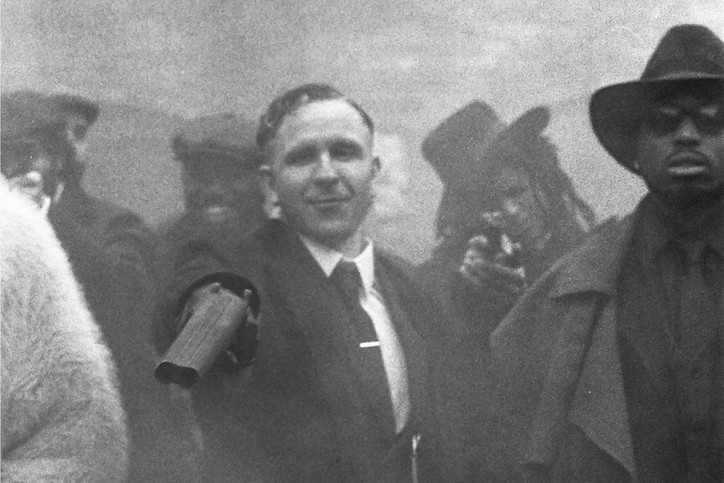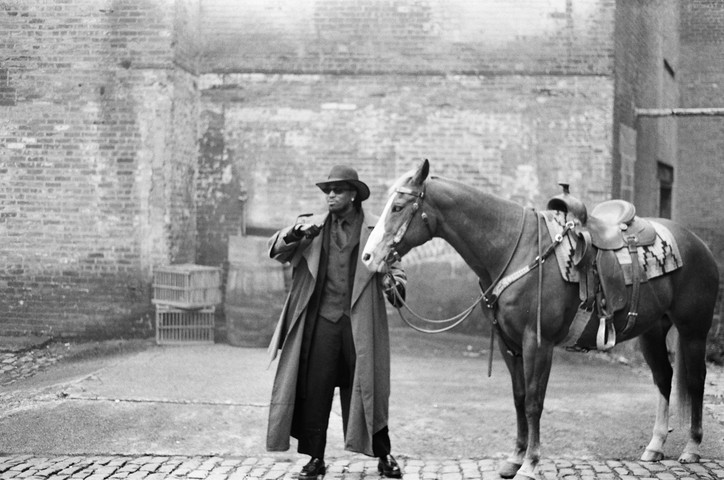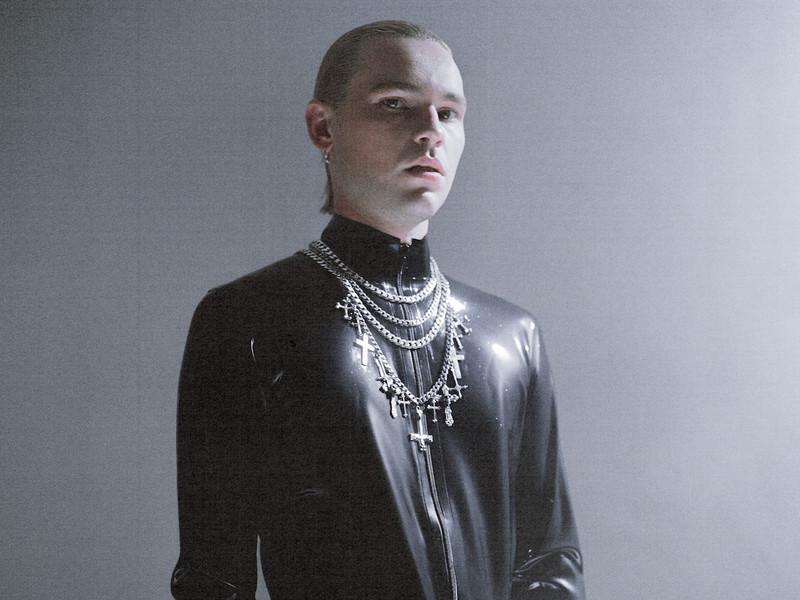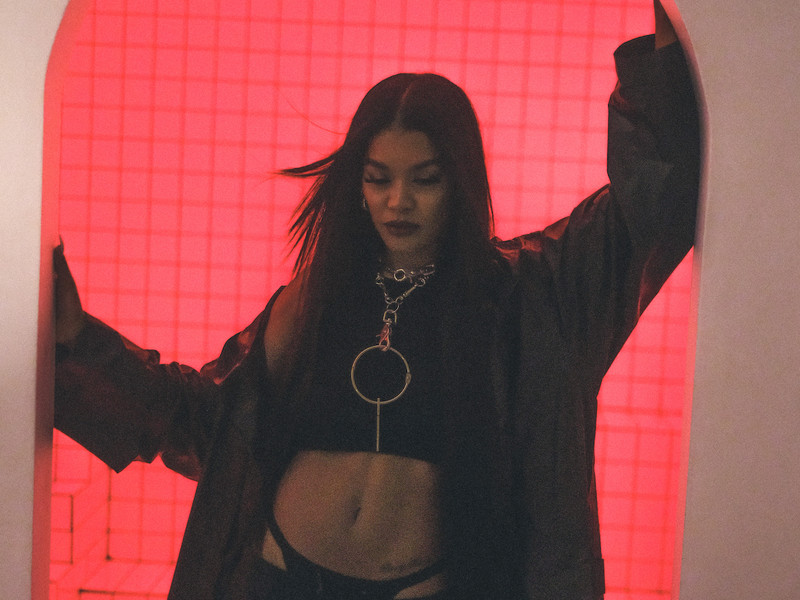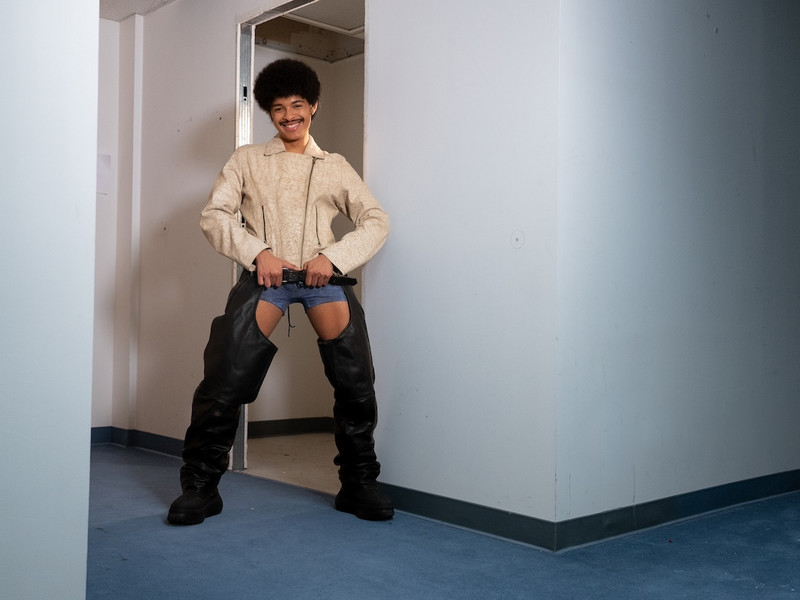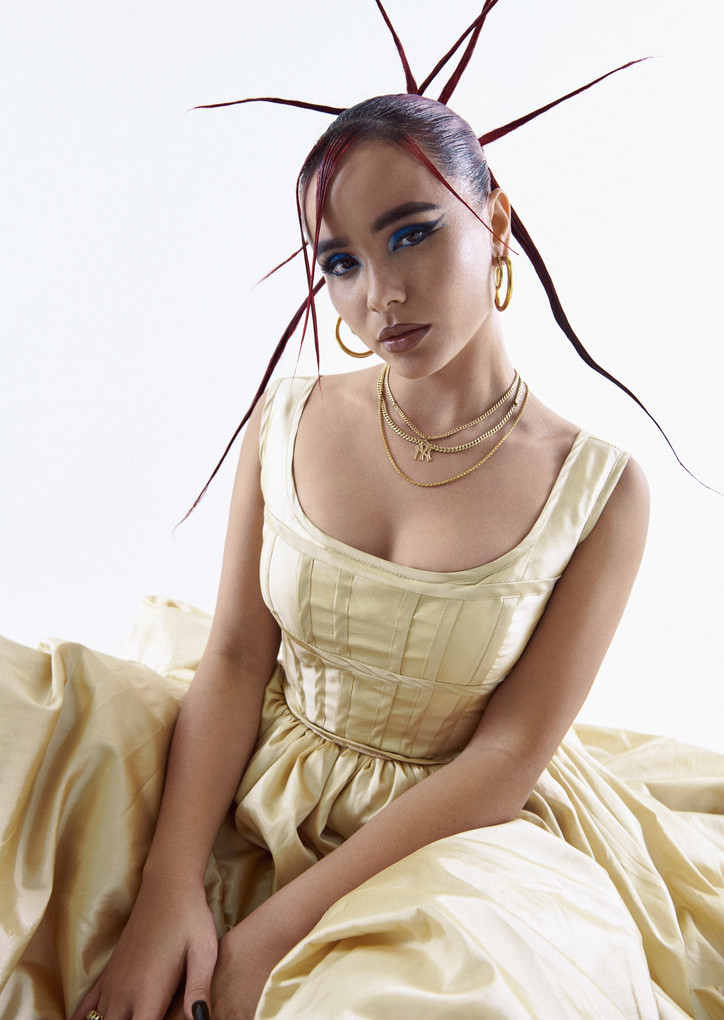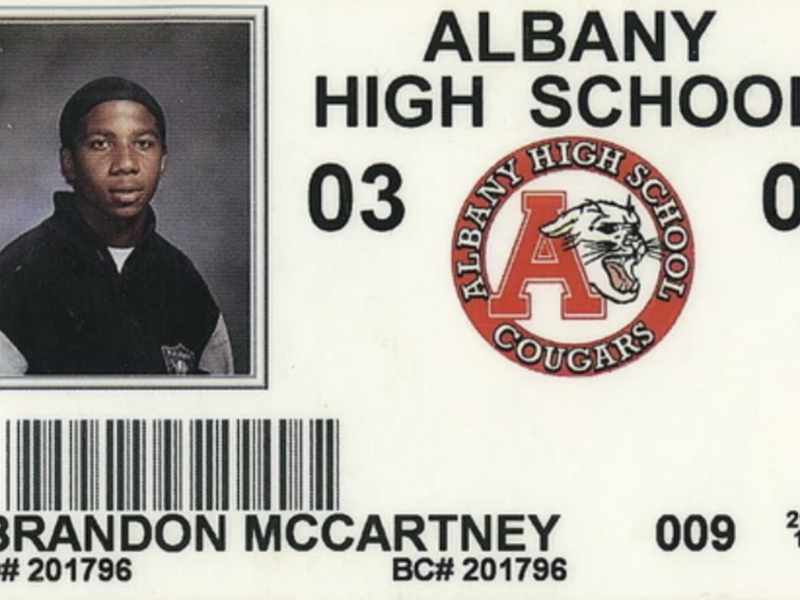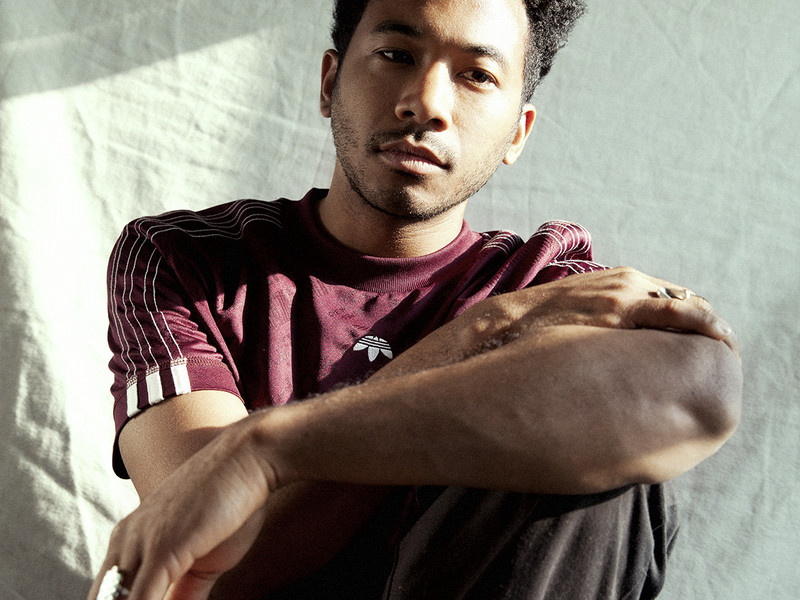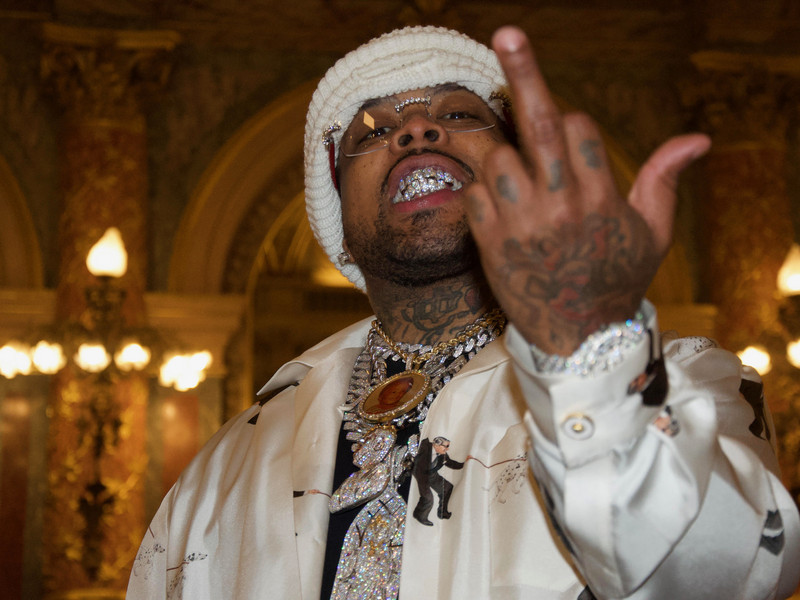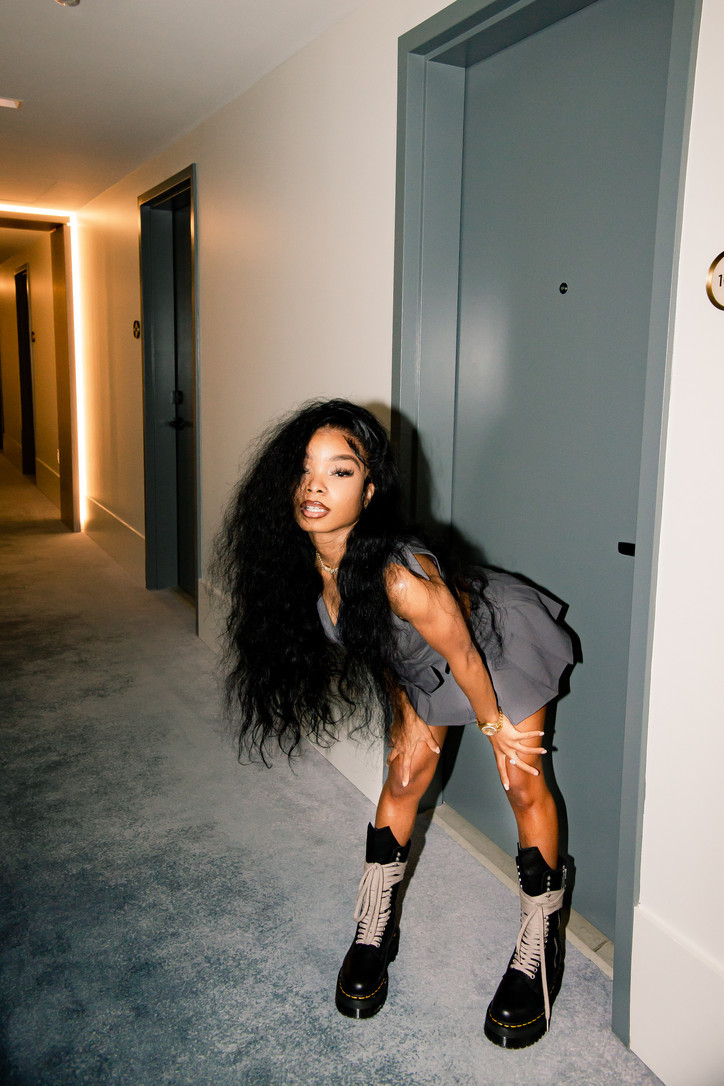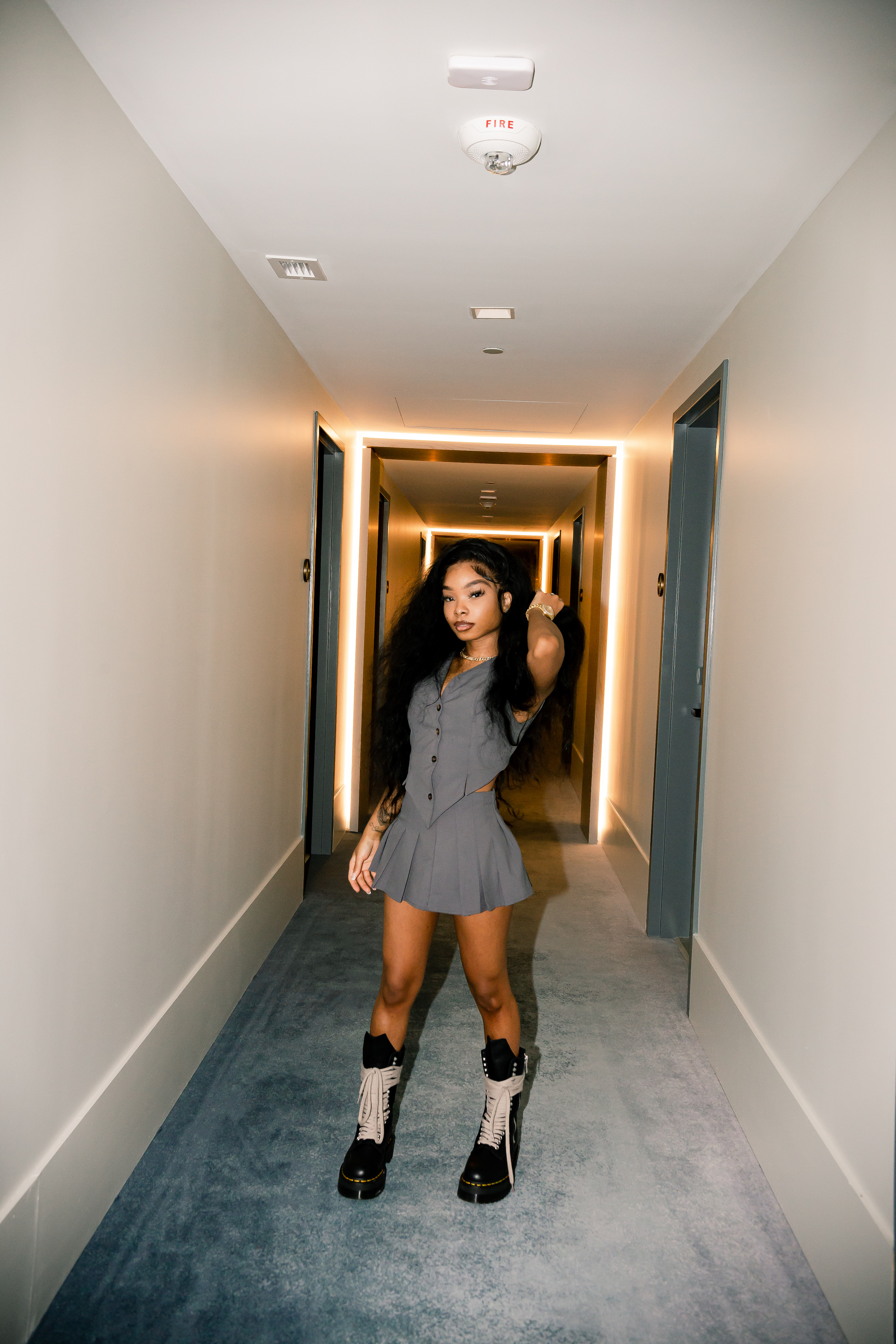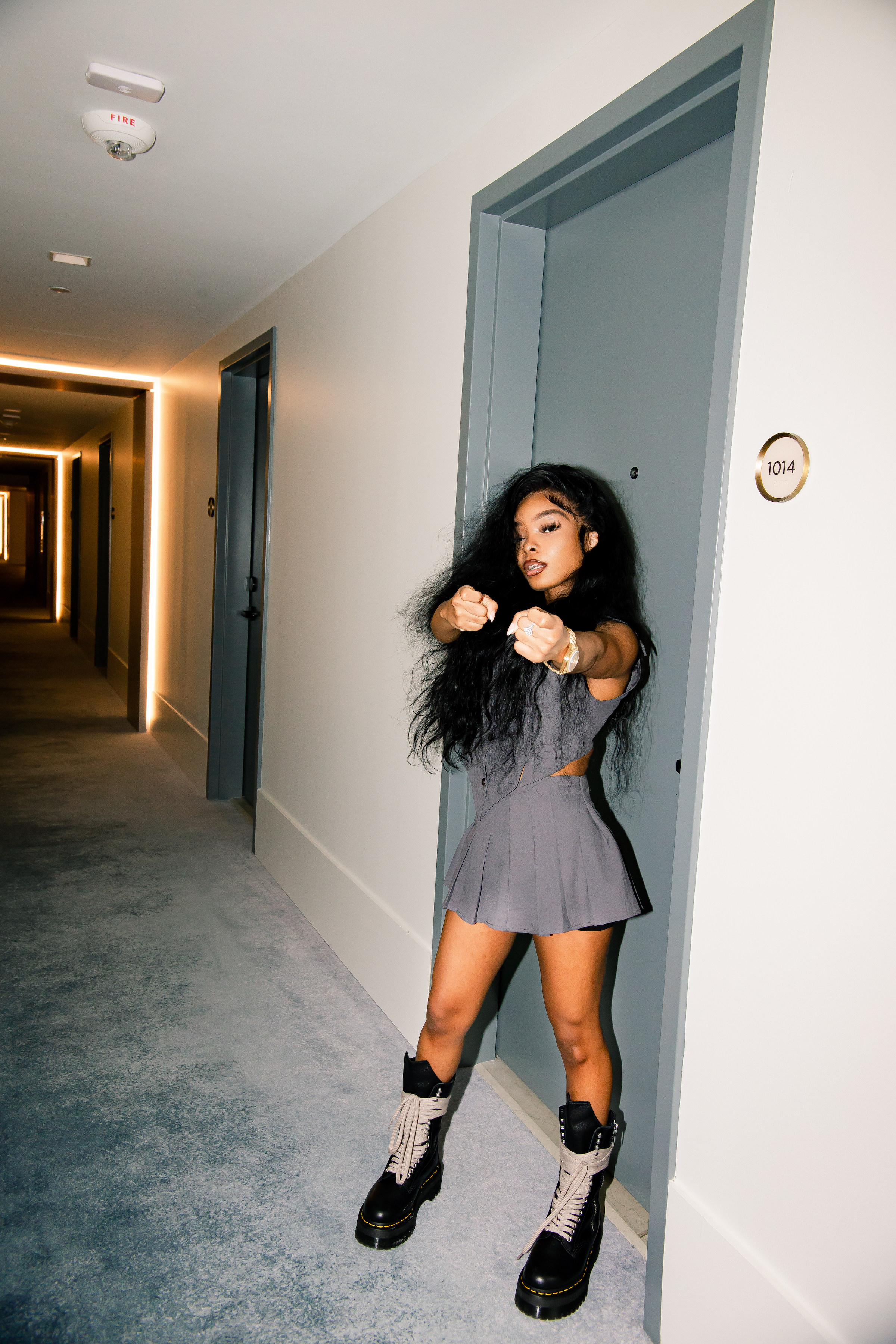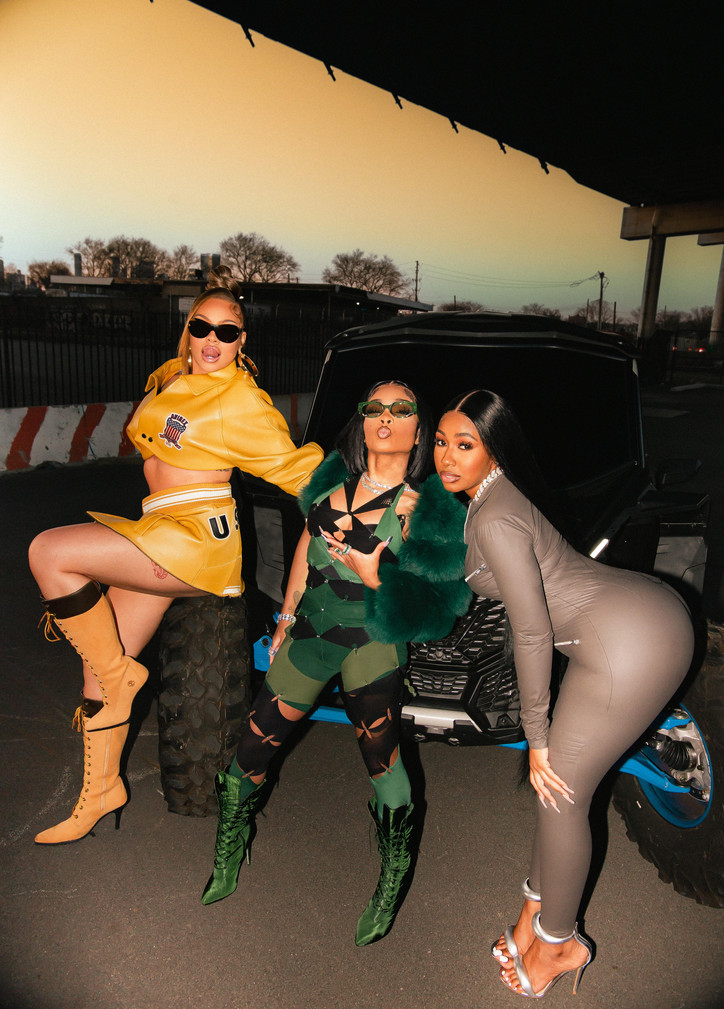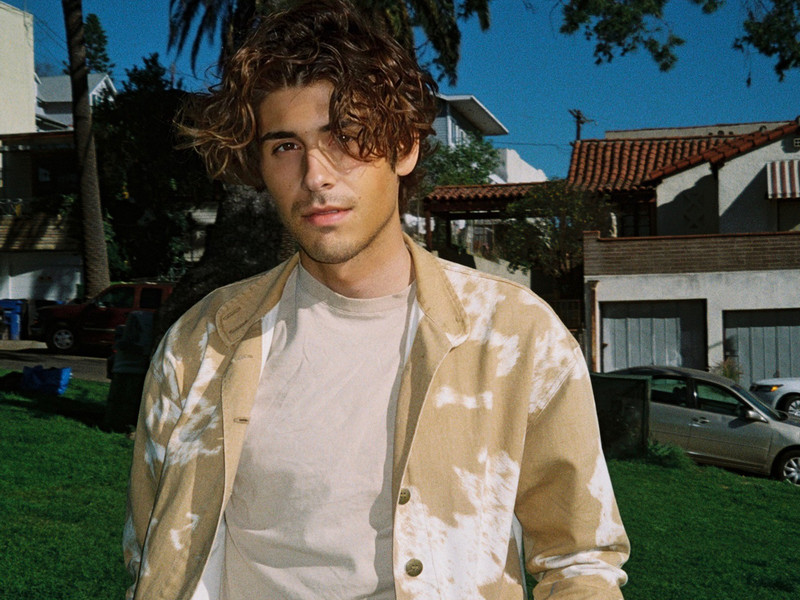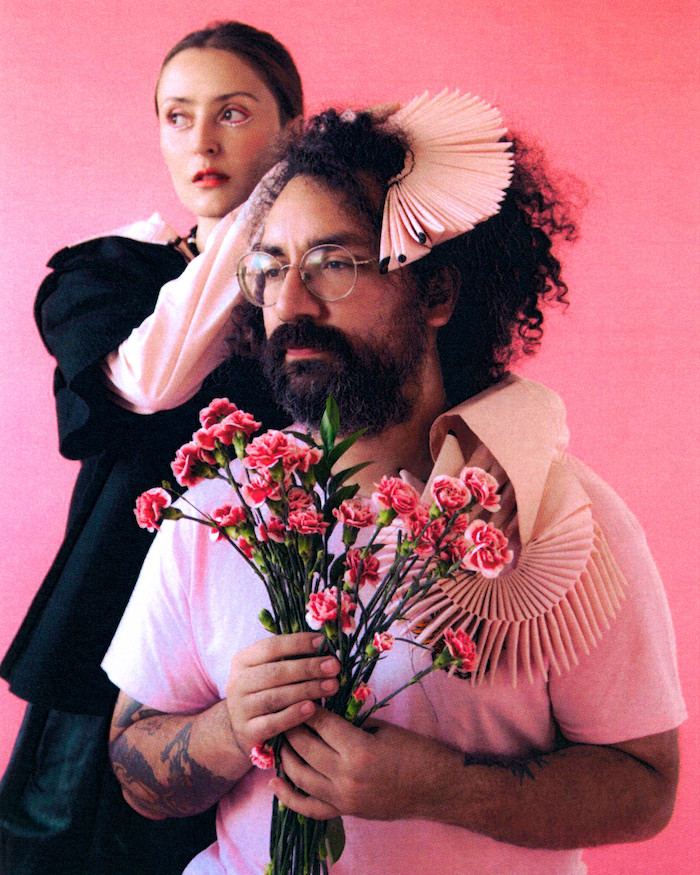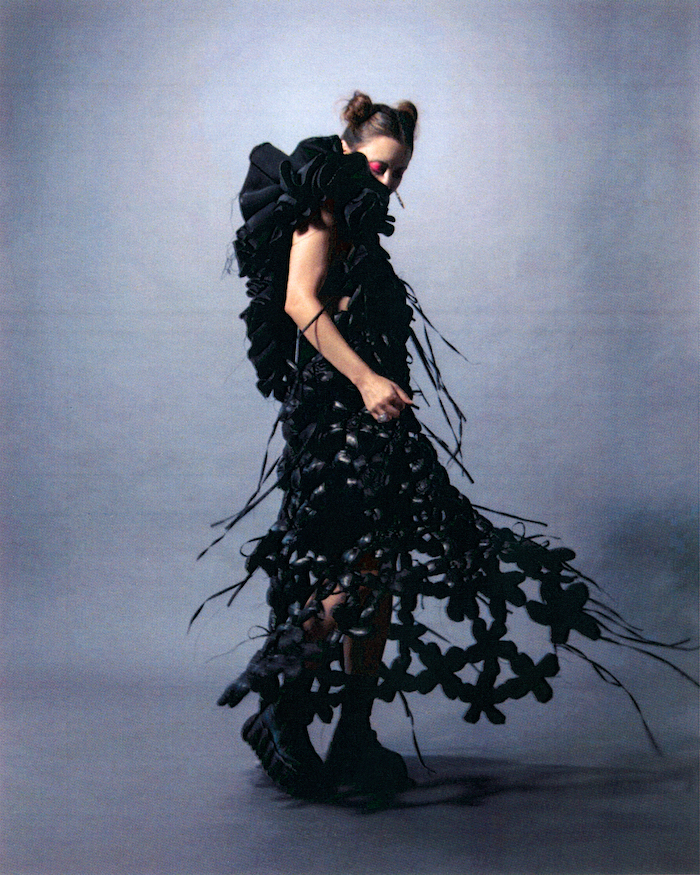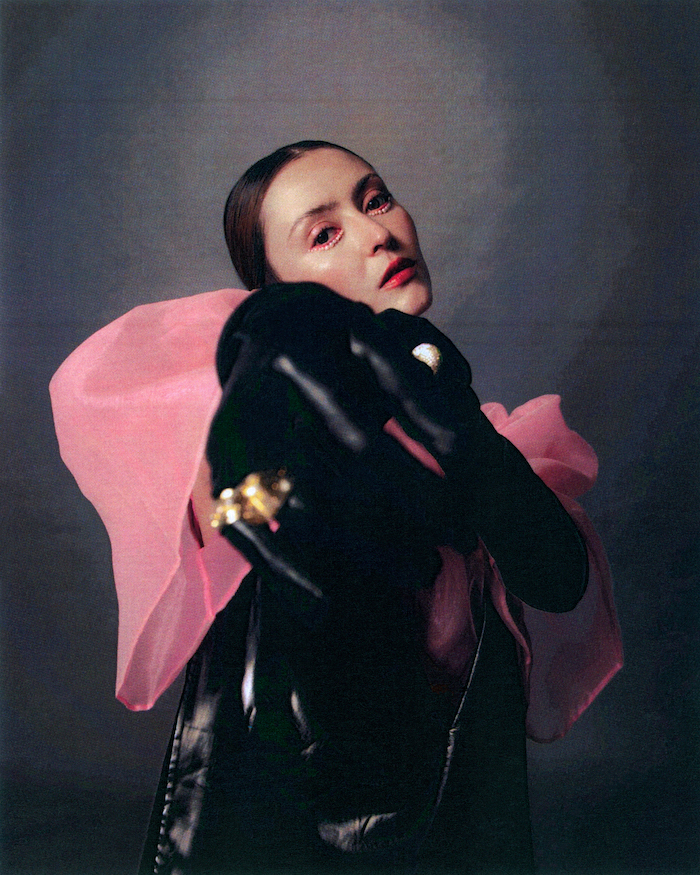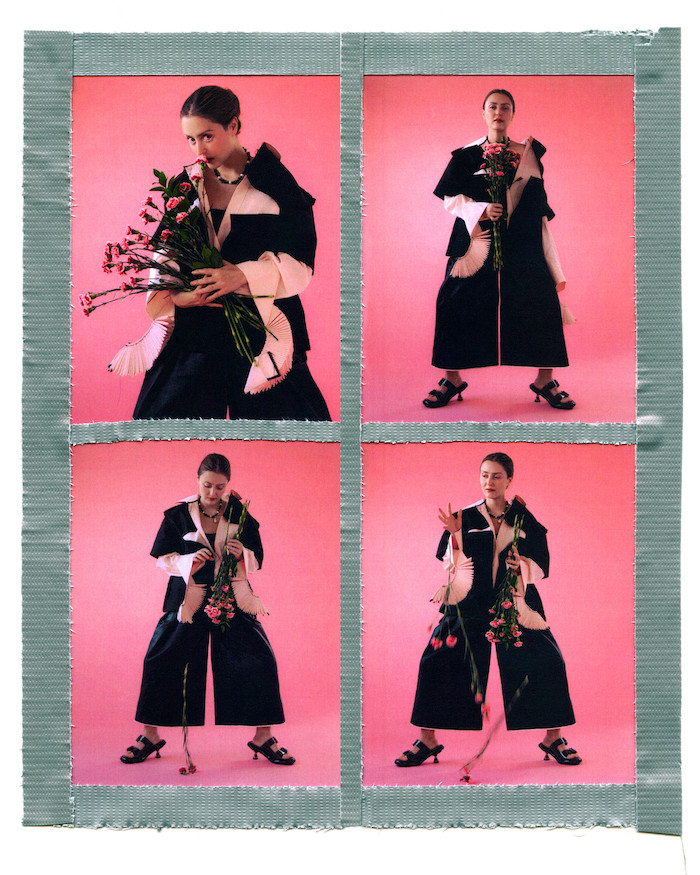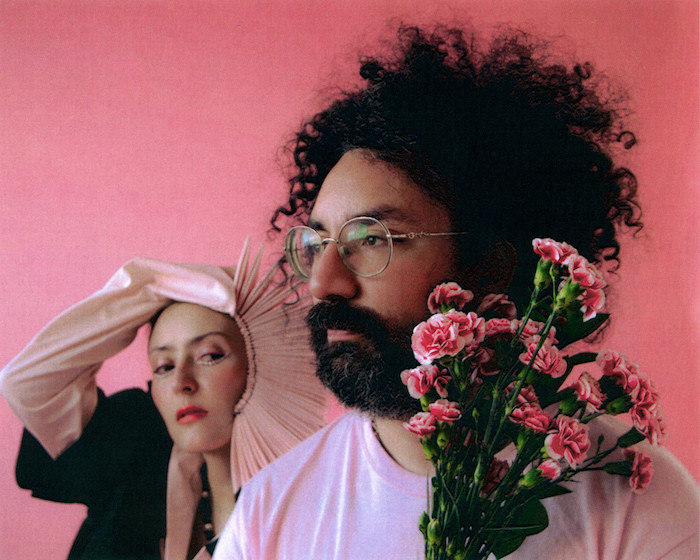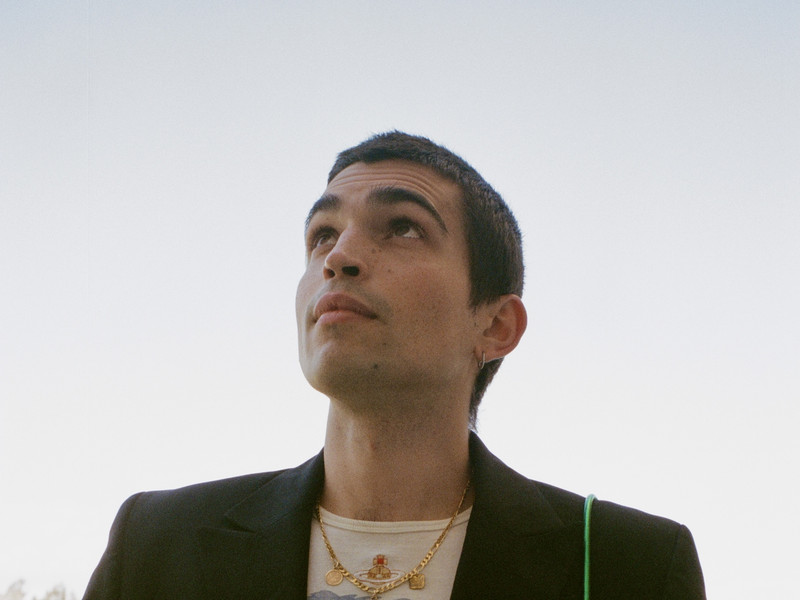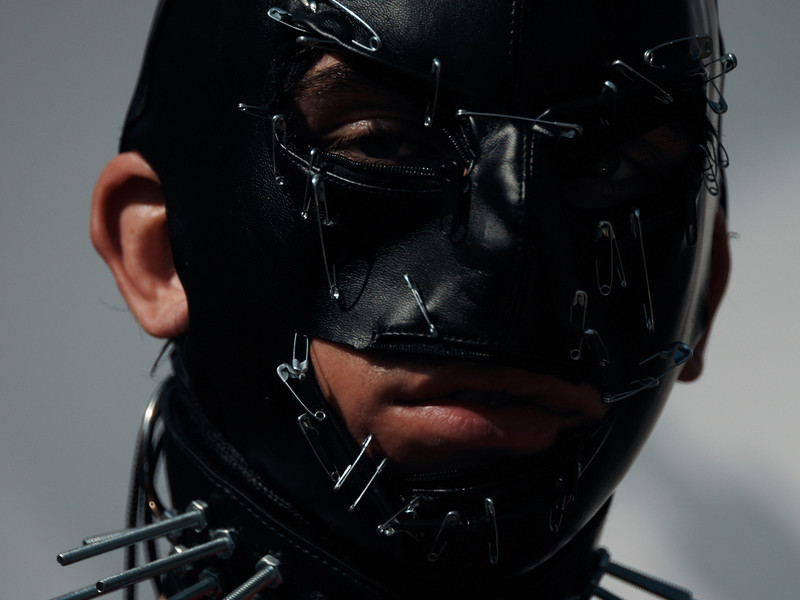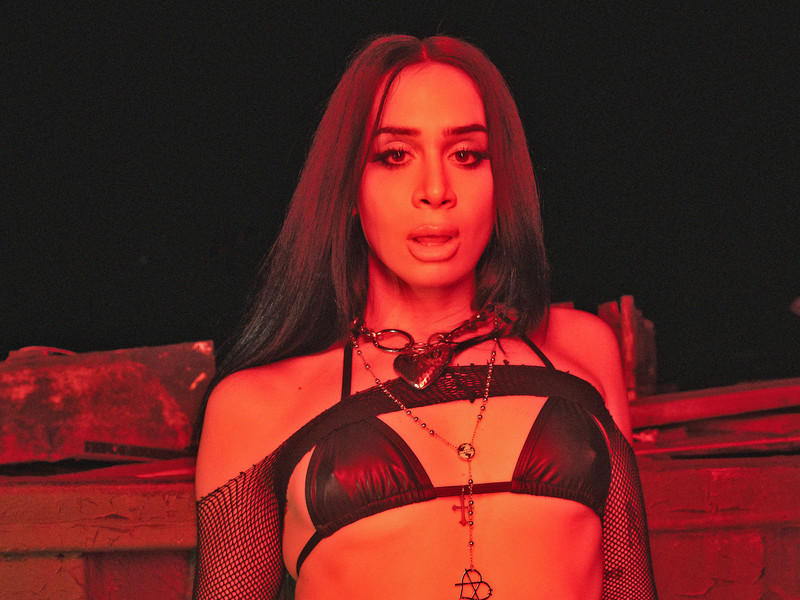I like the idea of music as the equalizer, the universal language that everyone can speak. Your sound brings together all of these pieces and people from your life. We touched on your first tour. I wanted to kind of go back to the early days — how did that feel putting out music and then getting to perform some of your first shows in New York City?
Juli— I mean, it was surreal.
Nico— I don't think we felt anything in the moment. We were on the go and so when you're on the go, we were not thinking so much. We were just living life, playing the shows, sometimes playing in front of 10 people, sometimes opening for a band with a crowd of 300 people. But everything felt like an adventure. And it still is for us. This is a huge adventure that we really don't want to end. It's so fun to just do our thing. Back then, it was a beautiful time when we were just not overthinking.
Juli— That is so true. We were never thinking of, 'How many tickets did we sell,' or 'What's our next strategy?' It definitely was surreal in the sense that I had to remind myself: I'm from Columbia and I'm playing a show in New York. Like, that's crazy. That's what you see in movies. I never thought I would end up doing this.
After that, you guys went on to make more music. You released some more singles and continued touring in all different places. How do you feel like your sound started to evolve after you spent more time touring, writing, and making music?
Juli— So the first EP, we were out of jazz school and we recorded with a band. After that, we were like, 'We can produce our own music.' So we get our hands on Ableton and it was sensory overload. We were listening to Flying Lotus, Until the Quiet Comes, and we're like, 'What is this? It's jazz chords and electronic music!' It opened up this crazy world for us. We made our EP and then we got to play a lot of it live. But there was one thing missing; we both wanted to have people dancing.
We started experimenting with some dance hall beats in Bedstuy. And Bedstuy is just full of Jamaican music. I remember one time we played in the East Village and people started dancing immediately and we were like, 'Oh, here we go.' So I think that changed our music because it was this interaction with other people and we were in the studio thinking, 'How will this translate live?' And we did CARISMA, which is a very Latino record, and we were kind of looking back into our roots. Then we couldn't play live because the pandemic happened, but we're going to play a lot of the songs live now.
As you said, after you released CARISMA, the pandemic happened and you didn't really get to properly perform. At that time, how did you continue to find inspiration? It was a difficult time for a lot of creatives. I feel like we were all limited in our work and the people that we could connect to through our work. Did you have any unexpected sources of inspiration that arose during that time?
Nico— Absolutely. For the record we ended up making, the inspiration was based on having this time and this space and thinking about the future. And I think that was a huge source of inspiration because we felt we needed to change as people. It seemed like everybody else also had to rethink how to act and behave. So we treated the upcoming recording project as our last because during that time we felt that we didn't know what was going to happen. We were not part of our label anymore. We didn't have any ties. We were not working with management.
Everything started from zero. As you said, the world really changed after that. We put all of the ideas that we could into the upcoming recording project. And that was so inspirational when you think about it. For example, the song we're releasing tomorrow is called ‘Strong Emotions.’ It's a song that when I think about it now, we took all the left turns possible.
Juli— The moment inspired the moment, which is very meta, but it was like before this moment is gone, let's write this album. We didn't know if we had to go and get jobs or move out of the country. There was also the freedom of leaving our label and not having to go and play shows so we could literally just write all the time and be immersed in this world.
I think for a lot of musicians, writers, or anyone in the industry, that is what trips them up sometimes — thinking too far ahead. Your upcoming project delves a lot into anxiety about the future, social media, and so on. What does an ideal future look like for both of you?
Nico— Now that we're here, our future is that we're going to play six concerts in Medellín, Bogota, New York — we're going to play these songs on a big sound system and we're going to be able to sing what we feel. The future is very promising and inspirational. It feels right to put out positive messages right now. We all deal with real problems, so it's good to have some music or some piece of expression that is conscious. So for us, the future is coherent. We feel coherent with what we're doing.
Juli— I think it's about putting these conversations on the table and being able to talk about them. It's okay to talk about the fear of having children because of climate change. And things that, you know, maybe are not as spoken about on social media. In one of our songs, I say, 'I know you say you think about the future, but it happens all the time.' We're writing our future right now. So it's like, do you choose to spend all day scrolling on your phone? Or do you choose to go and read a book or interact with another human being? What Nico's saying is that being able to put this out for others is a gift. And hopefully, we can find a connection in it and start conversations so people can start these conversations.
